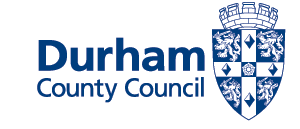Financial ability
Helping people in County Durham do more with their money.
The North-East has some the lowest levels of savings in the UK. A large percentage of the population have less than £100 in savings and would struggle if they lost their job or faced unexpected expenses. With high inflation and high prices, working families in County Durham are increasingly worried about their finances with some turning to high cost, credit, costing people across Durham millions of pounds annually in interest payments.
Over the last eight years we have been developing a project to deal with cost of living issues head on, by supporting families to reduce their household bills, reduce borrowing and save for a rainy day. The Financial Ability project is part of our wider strategy aimed at reducing financial hardship and creating a savings culture.
How organisations can get involved
The Financial Ability Project works with some of the county's largest businesses and organisations, such as Amazon, Hitachi, and the NHS. We also work with other large and small organisations to help improve the financial wellbeing of their staff. The continuing cost of living crisis is negatively impacting the workplace and in some cases, money problems are affecting staff performance.
The project provides staff working in County Durham with the information and advice they need to have better control of their finances. It is part of the Better Health at Work Award, which is a wider public health agenda looking at the physical and mental wellbeing of staff. The award helps organisations formalise the work they are already doing around staff wellbeing, including their financial wellbeing.
We offer several delivery options for our Financial Ability workshops. Sessions can be delivered live online, on-site, jointly with your human resources team, or by a programme of regular briefings.
The project aims to inform, and sessions address up-to-date topics like switching suppliers, negotiating deals, the importance of challenging or switching providers to get the best price, borrowing/debt, and saving.
Regular Financial Ability Project topics include:
- The Reality Check - a deep dive into organising our money and our spending decisions
- Keeping Cash Alive - a discussion about cash and card transactions, fees, and the impact on communities
- The Haggle - a discussion about challenging our bills and the best way to negotiate with household service providers
- Deal With Debt - a look at the UK debt management process, and ways to avoid it
- High Cost and Unregulated Lending - a close look at the high cost lending market and the use of Buy Now, Pay Later
- Reducing The Grocery Bill - a discussion about planning, spending psychology, and money saving ideas
Contact Durham Savers to find out more and arrange for someone to explain how you and your staff could benefit from Financial Ability.
How schools can get involved
Our schools are at the heart of many of our communities and they are in a unique position to engage families on a regular basis. The Financial Ability project offers schools several ways to get involved and help families reduce debt, household expenditure and save money.
One of the easiest ways that schools can engage with Financial Ability is by hosting virtual or in-person events that will attract staff, parents and families; these can include financial wellbeing, debt and saving, cutting household expenditure and maximising income.
Schools can also set up savings banks for children and help them save small amounts of money on a regular basis. It is the regularity that often leads to a savings habit, having a positive effect on the life of an individual.
In most cases, schools have direct communication with parents and guardians; this can enable schools to share the important messages about financial resilience delivered by the County.
We want all schools to be involved, so we work with school staff, parents and families first, then introduce school saving where appropriate; it is all about finding the right solution for each individual school.
Community groups can also get involved in virtual sessions; Contact Durham Savers to find out more.
Credit Unions
Anyone can join their local credit union. Find out more on our Credit unions, financial help and debt advice page.
The Credit Union is a 'not for profit social enterprise' regulated by the Financial Conduct Authority; they provide a government guarantee on all savings, so it is a safe place to save.
Complete your own personal finance audit
Carry out your own personal finance audit and save money by switching deals and suppliers. You could save money by switching your home energy provider, TV or broadband package, household or car insurance provider and bank account, credit card or mortgage provider.
Further support and advice
- MoneySavingExpert - hints, tips and links to help you save money
- Advice in County Durham
- Debt advice and financial help
- Family hardship

In partnership with
- Financial Ability

 Share this page on Facebook
Share this page on Facebook
 Share this page on Twitter
Share this page on Twitter
 Print this page
Print this page





